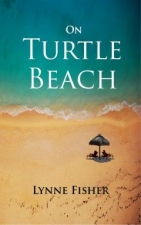Is inspiration something like this?

or just this?

What is my problem, you may innocently ask? Inspiration is a great word, especially for artists of all kinds, I mean, what are they going to say instead, when this word sums up their creative err…inspiration perfectly?
I know a lady who gets wound up by the incorrect use of certain words, the misuse of certain words, and the overuse of certain words, which she has to suffer hearing on the TV, in the media or even in her reading. And once she has drawn your attention to them, and once you’re over your giggles, you discover, through her pointing it out, what you unconsciously absorbed now becomes consciously monitored – and then you have to take a stance on it. Is it okay with you or not? Well, I have strong feelings over the misuse and the overuse of the word inspiration, or inspired, or inspire, but before I explain further, let’s look at what the various definitions and origins of the word are:
Here are three definitions from Merriam-Webster on ‘inspiration’
1. The action or power of moving the intellect or emotions
2.The act of influencing or suggesting opinions
3. A divine influence or action on a person believed to qualify him or her to receive and communicate sacred revelation
The Cambridge Dictionary on ‘inspiration’
1.Someone or something that gives you ideas for doing something… Eg The golden autumn light provided the inspiration for the painting and He went to church perhaps seeking divine inspiration.
2.A sudden good idea…Eg Helen had one of her flashes of inspiration and The Malvern Hills have provided inspiration for many artists.
And on the etymological origins of ‘inspiration’, from etymonline.com
1300, ‘‘immediate influence of God or a god,” especially that under which the holy books were written. From Old French inspiracion “inhaling, breathing in; inspiration” (13c.), from Late Latin inspirationem (nominative inspiratio), noun of action from past participle stem of Latin inspirare “blow into, breathe upon,” figuratively “inspire, excite, inflame,” from in- “in” + spirare “to breathe”
And the Lord God formed man of the dust of the ground, and breathed into his nostrils the breath of life, and man became a living soul. [Genesis ii.7]
The sense evolution seems to be from “breathe into” to “infuse animation or influence,” thus “affect, rouse, guide or control,” especially by divine influence.
And going back to Merriam-Webster on’ inspire’
To influence, move, or guide by divine or supernatural inspiration; to exert an animating, enlivening, or exalting influence on.
So what’s my problem?
Well, you can see from looking at these descriptions that meaning swings from inspiration being as simple as having a good idea, a kind of realisation, or being moved by something – which I’m okay with in moderation…right through to more complex divine or supernatural influences, with some incredible quality, such as genius*, being breathed into someone by a powerful deity…which I’m not okay with for its overuse and misuse.
I feel artists of all kinds overuse this word, especially in mission statements when describing what they are stimulated by or moved by in order to create. It’s used so widely in the art world, that it’s become the norm, if artists don’t use it, it appears remiss or somehow lacking, and I’ll freely admit I’ve used it myself in the past. But for me, in this ‘higher’ sense of the word, it’s implying that exalted position of having being touched by a supernatural muse or some kind of divinity…when I feel art of all kinds is more about talent and skill. It comes across to me as too grandiose, too elevating, too esoteric, too much putting art on a pedestal, and looking at the derivations of the word I can see why these associations linger – all that breathing of life and divine influence have much to answer for.
But it’s this more extreme meaning that seems to have taken over whenever it is used outside the art world as well as inside it, and then it becomes a tad farcical in its increasing use on TV and in the media, cringe-inducing questions and comments by presenters on many innocuous and commonplace activities…suddenly are subject to inspiration:
What inspired you to decide to keep chickens? (having freshly laid eggs, perhaps, and to provide inspiration to make omelettes)
I can see the hills here are excellent for visitors to walk in. Is that what inspired you to repair the crumbling footpaths?
Inspired by the wishes of the local village community, the post office was able to remain open.
Next it will be:
What inspired you to mow the lawn?
What inspired you to decorate your Christmas tree?
Okay, I’m getting carried away, sarcasm doesn’t win arguments (but it’s fun sometimes ;>))
So to finish, I don’t like the word ‘inspiration’ having become trite and commonplace and I don’t like it being used by artists everywhere to describe their art practice in an elevated manner – and yes, that’s a huge paradox which I can’t solve for myself. But I think I’d simply be happy with just a few other ways of getting the same meaning across. Can’t we have a bit of variety, instead of the same old, same old. Instead of ‘inspired by’ – how about ‘stimulated, enthused, moved, motivated, urged, impassioned by’ instead?
Rant now over. *But watch out, there will be another one coming up on ’genius’*.
Are there any words being used out there that annoy you?
(images courtesy of pixabay)
















I’ve never really thought about this. The word seems to have multiple meanings, and they do have a tendency to conflict and confuse. My first thought right now is that I hope I haven’t overused or abused it in my own blog, where I deal with similar themes (though not nearly as coherently as you do, I must say.)
Personally, I usually use the word “inspired” in reference to a way that I *feel* when I am writing. Another word that I will use is “motivated” — but to say that I *feel motivated* is much different for me than to *feel inspired.* I’m motivated if I even feel like writing at all. I’m inspired if, at the time I’m writing, I actually think my writing is *good.* This is more rare. I can be motivated without being inspired, but I cannot be inspired without being motivated as well.
You asked if there are any words that annoy me. The first word that comes to mind is the word “recovery.” People often talk about their “recovery” but if I ask them what it is that they are recovering *from* they are often very evasive. One person responded by telling me it was like asking if he still beat his wife – as though my question were rhetorical, and not a logical one prompted by his use of the word, I also saw a bumper sticker that read “If you’re not in recovery, you’re in denial.” So I must be in “denial” because I don’t consider myself to be in “recovery?” Whatever *recovery* is? That sort of rhetoric makes me almost as nauseous as political rhetoric, which I also disdain.
Thanks you for this thought-provoking post.
LikeLike
Hello, Andy. Thanks for your thoughts. It’s funny after the rant, I kind of softened my feelings about the use of ‘inspiration’. And I think I’m more along the lines you have described now. Motivation, then if you’re lucky, and because you’ve placed yourself into a receptive frame of mind, something inspired/magical to onseself can come through. It’s still over-used, but hey ho.
Hmmm, ‘recovery’. Well, you’re right, people should be happy to explain what they are recovering from, if they have up front stated they are in it. I guess mental health must be the issue, but if we are going to be more open about talking about mental health, as we should be for the benefit of all, then whoever uses it should feel free to explain. Thank you for sharing!
LikeLiked by 1 person
Really funny. A gentleman I work with is like the woman you mentioned who is always correcting everyone’s grammar. No one wants to show him anything they’ve written for fear of red marks all over it. One of my co-workers gave him something and wrote the word can not. He wrote her a note back, with the definition of cannot stating ‘no one has used that version since the 1800’s and he can not believe she wrote two words for cannot; from now on I think you should use can’t’. Every time he sees an article with the word can not, he clips the article and gives it to her to let her know she is not alone, but that he is right. He’s brutal.
He actually has the same feeling for the word ample as you do for inspiration. He says ample is only to be used to describe parking lots and women’s breasts. He gets very annoyed when it is used in any other way.
I think you are correct with inspiration. I am not sure what the limits should be, but I am sure inspiration for keeping chickens should not be included.
LikeLike
Glad you found it funny, Cynt, as I hoped it would be. Yes, some people can get very hung up on word usage, including myself on inspiration…but as far as correcting someone’s grammar, well, it’s just going too far really, a bit small minded I feel – like reading a novel and giving feedback just on the grammar slips! It’s odd, since the rant I have softened a little towards the use of ‘inspiration’, probably just as well, as after all, words themselves can have both limitations of meaning with some people, as your collegue demonstrates over his interpretation of ‘ample’, as well as allowing the broader sense to come through – there just has to be some give and take. Thanks for sharing, much appreciated. There is another rant coming up on genius, then after that I think I’ll be done!
LikeLiked by 1 person
I agree with what you say about the misuse, your example about mowing the lawn was a good one. But I like the possibility of inspiratation as something being channelled through us, rather than from us, as our egos claim everything we do in order to prop up a false idea of self. Ideas, word combos come into my head from who knows where and I like the possibility that there’s a universal source of inspiration. The bushmen of the Kalahari desert believe that stories come with the wind and as a writer you have to be ready. The War of Art says the same, the writer practises his skills but has to be ready for when his muse comes with inspiration.
LikeLiked by 1 person
Hi Sylvia, I can see what you mean, about the ideas coming through us, rather than from us and that by using inspiration to describe this, it removes ego from the equation. The War of Art does talks about this, with regard to creative muses, as you day, but I do struggle with this more supernatural aspect regarding creativity. And it will come up when I address genius too. Food for thought though and thanks for your comment. Most appreciated!
LikeLike
lol, no, there is no words that annoy me, but I enjoyed reading this.
LikeLike
Good!and thanks
LikeLike